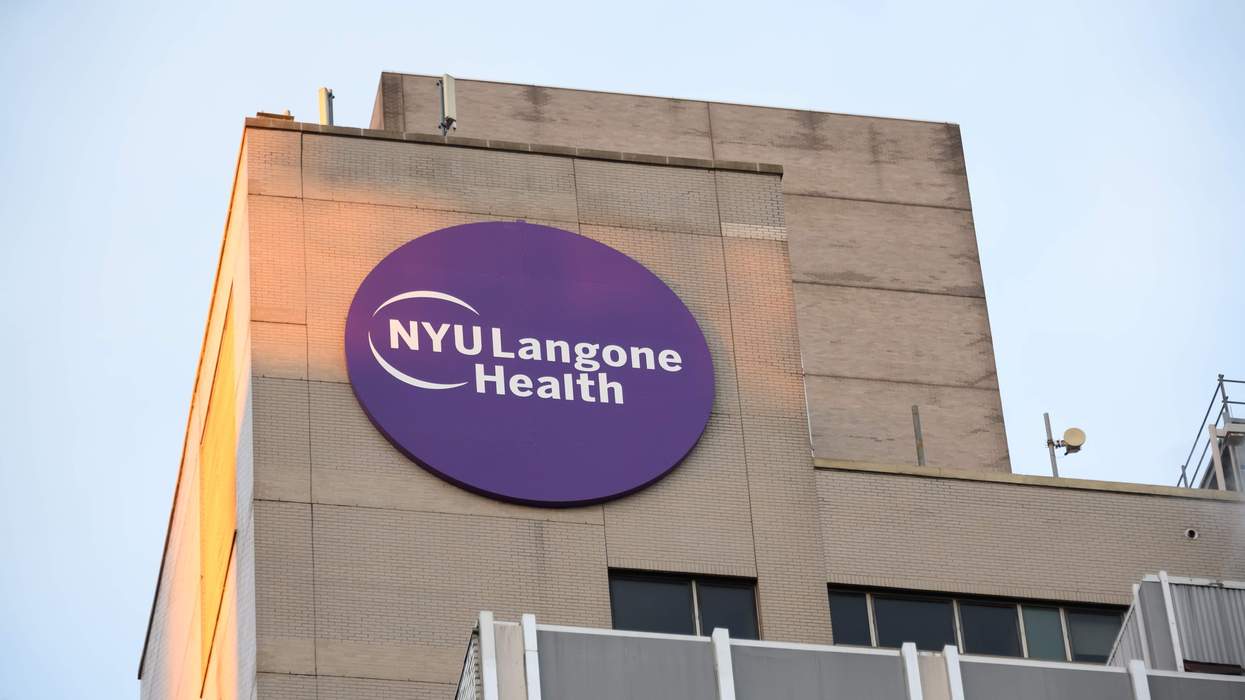Andy Cohen stepped in it last month while interviewing Nicki Minaj. He asked the singer, "Who has the biggest dick in the music industry?" Minaj responded that she's only been with one man for 10 years and shut that conversation down.
Cohen's invasive line of questioning, in which he also asked to take a selfie with Minaj's butt (to which she politely said no), is another example for the conversation in media on whether gay and bi men are being sexist while making offhand misogynistic comments. A few celebrities have attempted to speak out about the misogyny they've experienced from queer men. Their arguments, though, were lost amid usage of homophobic slurs or spouting of overused gay tropes. Still, there is truth to gay and bi men being sexist.
Traditionally, misogyny has been intrinsically tied to sexual desire -- men dictating what women do or who they are, in order to appease the male gaze all while upholding a patriarchy. That might describe bi men who are misogynistic toward women, but it can't be the case for gay men who don't have sexual or romantic attractions to women. Perhaps that's why when women say "Gay men can be just as if not more misogynistic than straight men," many gay men brush it off as nonsense.
But brushing off the concerns of women without self-reflecting on how we men treat them, no matter our sexual orientation, is foolish.
When I turned to social media to ask my female readers about misogyny they've encountered at the hands of queer men, I was inundated with responses. Stories of gay and bi men fat-shaming, slut-shaming, and doling out harshly critical (usually unsolicited) advice on beauty standards were common. Comments like "You would be pretty if you smiled more" or "wore more makeup" or "dressed better." This is a clear example of gay and bi men asserting authority over women by critiquing their appearance as needing to become more feminine or conventionally beautiful.
While for gay men there may not be a sexual attraction involved, there is still a clear need to appease male-appointed standards. Whether or not it's weighted in sexual attraction, misogyny continues to affirm a patriarchical society. So there is no difference between straight male misogyny and that of gay and bi men.
Another common theme was of men physically touching women without consent. In this case, gay men specifically were named as touching women's boobs, hair, or other body parts without permission and it was dismissed because he said "I'm gay." Some queer men use misogynistic language like "cunt" or "pussy" as derogatory speech. Others observed more childlike behavior, from gay men being grossed out by female genitalia to them giving rude descriptions and saying it reeks.
The responses kept coming, and what upset me was that I had seen or taken part in a lot of these situations. I have seen gay men grope women without asking, calling it a joke. I've seen them objectify women's bodies, critiquing them with a harsh eye. I hadn't noticed my own complacency.
For too long we have all been contented to our male privilege and complacent toward misogyny. But that's how privilege works and why so many of us choose to stay comfortable rather than address it.
Every time women have tried to tell us queer men their experiences, we've brushed them off -- or worse, we've silenced them. Take, for instance, the brouhaha over the trans slur. Gay and bisexual men essentially told trans women to shove it. Like children, we stomped our feet over wanting to use a slur that is cast daily against trans women, often in violent situations. Serria Mannie's much-debated Time magazine piece over gay men appropriating black female culture had valid arguments. Then not only were her points brushed off, but also gay men attacked black women for backing her up. We claim to be allies but this isn't how allies act. Can anyone name a single time when gay and bi men actually listened to women?
Because gay and bi men are systemically oppressed because of our sexuality, we cannot go on believing that our other identities -- such as our gender or race -- automatically mean we cannot oppress others. That is absolutely false. We can oppress people of all genders if we are not intentionally working to dismantle patriarchal structures, starting within our community. We cannot exchange a heteropatriarchy for a homopatriarchy when it still oppresses and silences women in and out of our community. We must deconstruct the patriarchy, listen to the concerns raised by women, and work on creating safe spaces for their voices to be heard.
ELIEL CRUZ is a contributor on issues related to bisexuality. In addition to The Advocate, Cruz frequently writes on the topics of sexuality, religion, pop culture, and media at Mic and Religion News Service. You can follow Cruz on Twitter @ElielCruz.















Charlie Kirk DID say stoning gay people was the 'perfect law' — and these other heinous quotes
These are some of his worst comments about LGBTQ+ people made by Charlie Kirk.